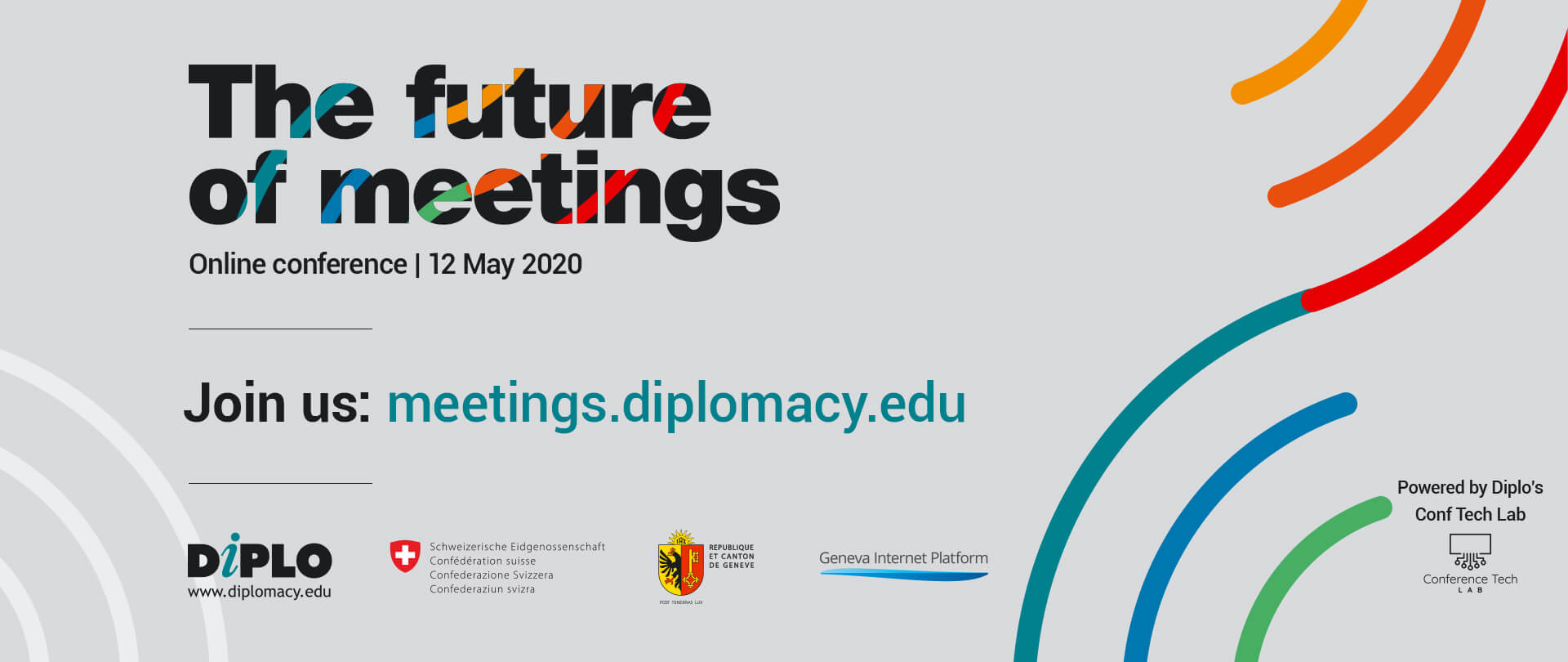
The Future of Meetings: Doors open at 12:45 UTC.
Registrations are now closed.
Streaming of sessions is available on this page.
For more information, please write to us at webinars@diplomacy.edu.
The Coronavirus is changing how we meet and interact, ushering new ways of organising conferences and other events. Blended meetings, which combine virtual with face-to-face interactions, will become the norm.
The ongoing transformation of meetings and diplomacy will require us to adapt quickly to this new norm. Future meetings will require us to become conversant with technology, take security into account, adopt new moderation techniques, keep behavioural aspects in mind, and adjust traditional diplomatic meetings to blended formats.
DiploFoundation’s online conference The Future of Meetings was held on Tuesday, 12th May, from 13:00 to 16:00 UTC (15:00–18:00 CEST), and tackled the most pressing questions and issues, and how to resolve them. Are good online moderators born or bred? How do we combine online and onsite events into the same policy process? Can we integrate corridor chats into formal virtual meetings?
The conference included 20 sessions (grouped into 5 tracks) with 15-minute pointed discussions that will be facilitated by trained moderators.
Reports and video recording are coming soon.
Last updated: 12 May 2020






